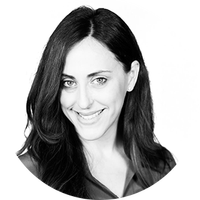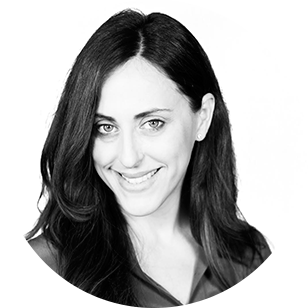Face it, ladies: We can't all be beautiful
And that's a good thing!

A free daily email with the biggest news stories of the day – and the best features from TheWeek.com
You are now subscribed
Your newsletter sign-up was successful
Women, you are not all beautiful.
I know. That's a pretty harsh way to begin a piece about raising women's self-esteem, but I promise it is a good thing.
That we are living in an age of impossible beauty standards is a given. Between Hollywood and the fashion industry's narrow definition of beauty and the rise of Photoshop, we find ourselves in a moment when images of thin, white, full-lipped, and bright-eyed women are in unprecedented abundance. See enough of these and it is only natural for a woman to start feeling bad about the way she looks.
The Week
Escape your echo chamber. Get the facts behind the news, plus analysis from multiple perspectives.

Sign up for The Week's Free Newsletters
From our morning news briefing to a weekly Good News Newsletter, get the best of The Week delivered directly to your inbox.
From our morning news briefing to a weekly Good News Newsletter, get the best of The Week delivered directly to your inbox.
In response, more and more companies are attempting to redefine beauty — and, hey, get you to buy their products — by featuring what they call "real" women in their ads. In recent years, labels like American Eagle Outfitters and Betabrand have hopped on the "real" wagon featuring more average-looking women in their campaigns. But no one has been as committed to this concept as Dove, whose "Real Beauty" campaign turned 10 this year. The company, which is "committed to helping all women realize their personal beauty potential," has churned out viral ad after viral ad with essentially the same narrative: Women whose looks are a slight deviation off what we consider beautiful discover that they are beautiful, or at least more beautiful than they thought — usually with a few tears.
This fixation on displaying "real" bodies and identifying them as beautiful exists outside the realm of advertising too. A few years ago a website called My Body Gallery hit the internet, supplying women with a database of selfies searchable by height, weight, pant size, and shirt size. The goal? "To help women objectively see what we look like and come to some acceptance that we are all beautiful."
In April, the Today show ran a "Love Your Selfie, Reclaiming Beauty" series, and just last week the women's site XO Jane posted a picture of the editorial staff in bikinis and called upon editors of other women's magazines and readers to share their bikini pictures as well. Editor Jane Pratt writes:
It is called Show Us Your Swimsuit Bodies and its goal is to remind all women that a swimsuit body is something they have already. That it doesn't have to look like the images of other bodies they often see us editors as promoting. That the beauty is in their differences. And that there is really only one step to being bikini ready and that step is to put on a bikini." [XO Jane]
Here's the thing about "real" bodies. We actually see them every day. Walk down the street. Go to a locker room. Or a beach. Real bodies are literally everywhere (except perhaps a few neighborhoods in Miami or Los Angeles). So these attempts aren't about getting us to see more real bodies — they're about getting us to engage in some communal affirmation that they are not only okay but also beautiful. The presumption here is not so different from the one implied by the airbrush-friendly media: Women need to turn outward to feel good about their bodies.
A free daily email with the biggest news stories of the day – and the best features from TheWeek.com
Anyway, what is a real body? The very notion is a problematic concept. What makes for a real body or face or beauty? How much must they deviate from the standards set forth by the fashion industry? Does real beauty involve makeup? A personal trainer? Can someone have it if they had a nose job? How thin is too thin for real beauty? How fat is too fat?
Unlike "real" bodies, there actually is something scientific about beauty. We don't all have it, and that's okay. As Virginia Postrel noted in The Atlantic a few years back in her response to the Dove campaign:
Beauty exists, and it's unevenly distributed. Our eyes and brains pretty consistently like some human forms better than others. Shown photos of strangers, even babies look longer at the faces adults rank the best-looking. Whether you prefer Nicole Kidman to Angelina Jolie, Jennifer Lopez to Halle Berry, or Queen Latifah to Kate Moss may be a matter of taste, but rare is the beholder who would declare Holly Hunter or Whoopi Goldberg — neither of whom is homely — more beautiful than any of these women. [The Atlantic]
Some of us might be pretty, others cute, others sexy, or others charismatic. Some of us might be a little different looking in a way that other people find attractive. But beauty? It is a rare bird, and we should stop trying so hard to democratize it. (That doesn't mean we still can't be committed to the idea of broadening the concept to include fuller bodies and darker faces, though.)
I find this liberating. It is an invitation to stop caring so much, to step into a bikini not because we are all beautiful, but because it just doesn't matter. Seeing those pictures of other women might help in the short term, but ultimately they just push us deeper into the cycle of observing our own and other's bodies and gauging where they fit in the attractiveness spectrum.
This isn't to say that I think these attempts to promote real beauty aren't well intentioned, because I absolutely do. It's just that, if the long-term goal is to get women to achieve self-acceptance, we need to stop obsessing over looks so much, even when presented in the context of empowerment. In a dream world, women don't need to seek out approval — whether for real beauty or "real" beauty, from other women or men — to put on a bathing suit. They just put it on.
Elissa Strauss writes about the intersection of gender and culture for TheWeek.com. She also writes regularly for Elle.com and the Jewish Daily Forward, where she is a weekly columnist.
-
 Switzerland could vote to cap its population
Switzerland could vote to cap its populationUnder the Radar Swiss People’s Party proposes referendum on radical anti-immigration measure to limit residents to 10 million
-
 Political cartoons for February 15
Political cartoons for February 15Cartoons Sunday's political cartoons include political ventriloquism, Europe in the middle, and more
-
 The broken water companies failing England and Wales
The broken water companies failing England and WalesExplainer With rising bills, deteriorating river health and a lack of investment, regulators face an uphill battle to stabilise the industry
